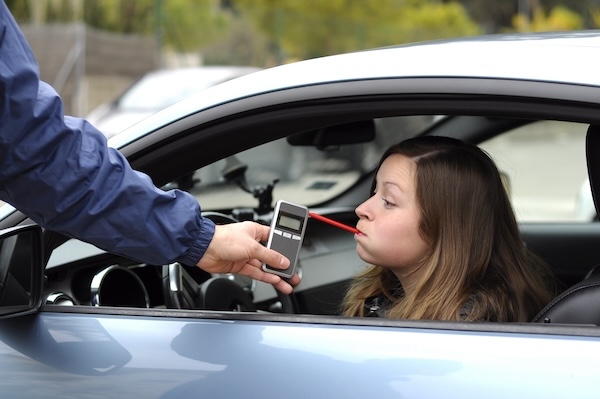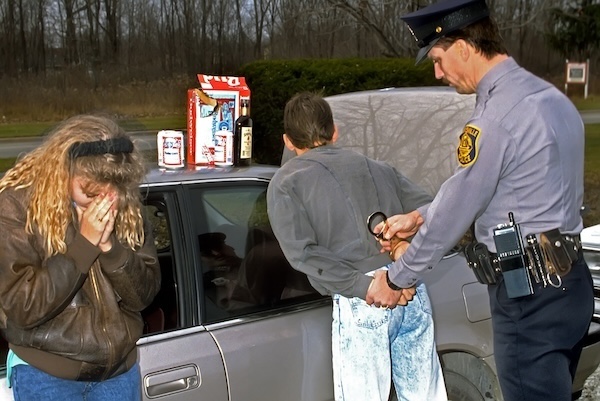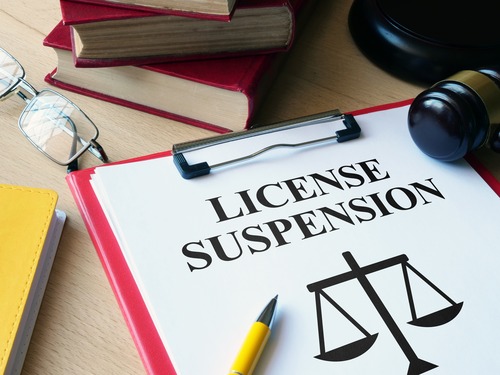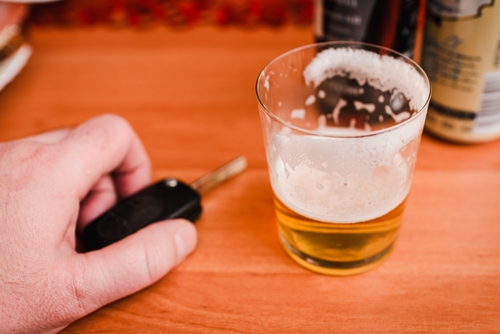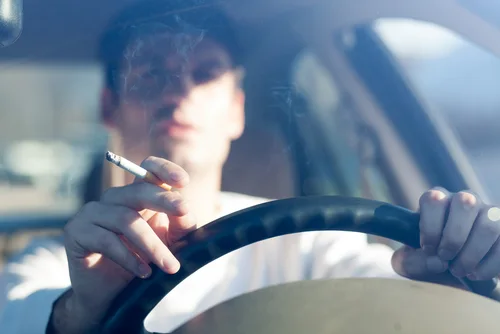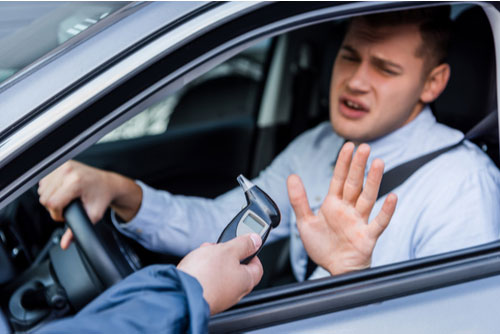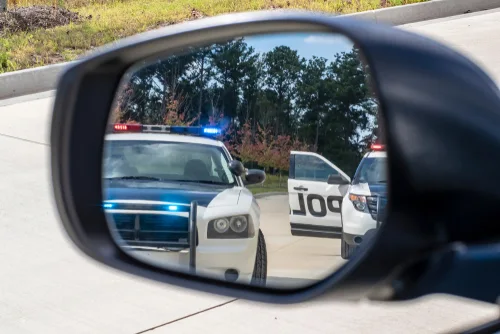Differences Between a DUI and DUAC
If you’ve been pulled over for suspected drunk driving in Greenville, you may be surprised to learn that there are two different types of charges you could face: DUI (Driving Under the Influence) and DUAC (Driving with an Unlawful Alcohol Concentration). Although they may seem similar, understanding the distinction between these two offenses is critical — especially when it comes to potential penalties, legal consequences, and your defense strategy.
If you’re facing charges, it’s crucial to consult with an experienced DUI lawyer in Greenville, SC as soon as possible to understand your legal options.
In South Carolina, DUI and DUAC are separate offenses with different requirements for prosecution. A DUI charge requires proof that the driver was “appreciably impaired” due to alcohol or drugs while operating a motor vehicle.
On the other hand, a DUAC conviction only requires that the driver’s BAC (blood alcohol concentration) was at or above the legal limit of 0.08%, regardless of whether the driver showed signs of impairment.
Introduction to DUI and DUAC
Driving Under the Influence (DUI) and Driving with an Unlawful Alcohol Concentration (DUAC) are two serious offenses in South Carolina. A DUI charge occurs when an individual is found to be operating a vehicle while impaired by alcohol or drugs, with a blood alcohol concentration (BAC) of 0.08 percent or higher. On the other hand, a DUAC charge is specific to South Carolina and occurs when an individual’s BAC is at or above 0.08 percent, regardless of whether they appear impaired. Understanding the differences between these charges is crucial for navigating South Carolina’s legal system and building a strong defense.
While both offenses involve driving with an unlawful alcohol concentration, the key distinction lies in the evidence required for prosecution. A DUI charge necessitates proof of impairment, whereas a DUAC charge is based solely on the driver’s BAC. This means that even if a driver does not exhibit signs of impairment, they can still face a DUAC charge if their BAC is at or above the legal limit. Recognizing these nuances is essential for anyone facing a DUI or DUAC charge, as it can significantly impact the defense strategy and potential outcomes.
DUI vs. DUAC in Greenville, SC: Key Differences
The biggest difference in the DUI and DUAC debate lies in what the arresting officer must prove. For a DUI offense, the state must demonstrate probable cause that the driver’s ability to safely operate a vehicle was impaired. This may involve field sobriety tests, witness testimony, and evidence collected from the scene.
In contrast, a DUAC case hinges solely on the results of a breathalyzer machine, blood tests, or other chemical testing. If your blood alcohol content (BAC) is at or above 0.08%, you could face DUAC charges even if you were driving normally. That’s why DUAC in South Carolina is often called a “per se” offense — the BAC level alone is enough for a duac conviction.
DUAC cases can be pursued under specific evidential circumstances, such as the results of chemical tests showing a BAC of 0.08% or higher. Our expertise in handling both DUAC and DUI cases ensures comprehensive support and defense strategies for clients facing these charges.
Laws and Regulations
In South Carolina, the laws and regulations surrounding DUI and DUAC are strict and complex. The legal limit for alcohol in South Carolina is 0.08 grams percent, and drivers can be charged with both a DUI and DUAC. The State’s implied consent laws require drivers to submit to testing if suspected of driving under the influence, and refusing to do so can result in harsher administrative penalties, including license suspension. A DUI or DUAC conviction can result in severe penalties, including fines, jail time, and the installation of an ignition interlock device. It is essential to understand the laws and regulations surrounding these offenses to navigate the legal system effectively and minimize the potential consequences.
South Carolina’s implied consent laws mean that by driving on the state’s roads, you automatically agree to submit to chemical tests if an officer suspects you of driving under the influence. Refusing these tests can lead to immediate administrative penalties, such as a six-month license suspension for a first refusal. Additionally, a DUI or DUAC conviction can lead to severe penalties, including substantial fines, jail time, and mandatory enrollment in the Alcohol and Drug Safety Action Program (ADSAP). For repeat offenders, the consequences are even more severe, with longer jail sentences, extended license suspensions, and the mandatory installation of an ignition interlock device.
Understanding these laws and regulations is crucial for anyone facing DUI or DUAC charges in South Carolina. By being informed, you can better navigate the legal system, challenge the evidence against you, and work towards minimizing the impact of these serious charges on your life.
Serious Consequences for DUI or DUAC Convictions
Whether you’re dealing with a DUI or DUAC conviction, the criminal penalties can be harsh. One of the serious consequences of these charges is the potential suspension or revocation of your driver’s license. A first DUI offense in South Carolina may result in:
Fines
Fines for a DUI or DUAC conviction in South Carolina can vary depending on whether it’s a first offense or a subsequent one. For a first DUI offense, fines typically range from $400 to $1,000, not including court costs and administrative fees. These amounts increase significantly for second or third offenses, with fines reaching up to $10,000.
It’s also important to note that additional costs — like towing fees, alcohol education classes, and reinstatement fees for your driver’s license — can quickly add up.
Jail Time
Even first-time offenders may face jail time. A first DUI conviction can result in 48 hours to 90 days in jail, depending on the driver’s BAC at the time of arrest. For instance, if your BAC was significantly above the legal limit, the mandatory jail time may be longer.
Defending against a DUI case involves understanding the complexities of DUI charges, including the nuances between DUI and DUAC charges, and the necessity of tailored defense strategies.
A second offense carries a jail sentence of five days to three years, while a third DUI offense can mean 60 days to five years behind bars. Judges may, in some cases, allow community service in lieu of jail for first-time offenders, but repeat offenders face severe consequences with limited sentencing flexibility.
License Suspension
A DUI or DUAC arrest triggers administrative penalties, including the immediate suspension of your driver’s license — even before a court conviction. Under South Carolina’s implied consent law, refusing a chemical test like a breathalyzer or blood test can lead to an automatic six-month suspension.
If convicted, a first offense typically results in a six-month suspension, while subsequent offenses can result in suspensions of one to five years or even permanent revocation, especially if there are prior convictions on your record.
Mandatory Enrollment in a Drug Safety Action Program
Anyone convicted of a DUI or DUAC in South Carolina is required to complete the Alcohol and Drug Safety Action Program (ADSAP). This program involves education, intervention, and in some cases, treatment, to address substance use and reduce the risk of repeat offenses.
You must complete ADSAP before your driving privileges can be restored. The program includes assessments, counseling sessions, and monitored progress, and the cost is typically borne by the offender. Completion of this program is also often a requirement for regaining your license or qualifying for ignition interlock participation.
Installation of an Ignition Interlock Device
An ignition interlock device (IID) is a breath-testing machine installed in your vehicle that prevents the engine from starting if alcohol is detected on your breath. South Carolina law mandates IID installation for anyone with multiple DUI or DUAC convictions, and even some first-time offenders may be required to install one depending on their blood alcohol concentration or if a minor was in the vehicle.
Offenders are responsible for all costs associated with the IID, including installation, monthly monitoring, and removal fees. This measure is intended to help ensure that offenders drive safely and stay sober behind the wheel.For subsequent offenses, the penalties become more severe, especially if there are prior DUI convictions or prior convictions for other related offenses. A second or third DUI offense could lead to extended jail sentences, longer license suspensions, and a permanent mark on your criminal record.
These penalties apply to both DUI and DUAC offenses, and administrative consequences — like losing your driving privileges — can begin even before your case goes to trial.
Understanding the Legal Process and Your Defense
When you’re arrested for drunk driving, the police must follow specific procedures. If the officer believes there’s reasonable suspicion of impairment, they may conduct a roadside DUI roadblock or administer tests to check your blood alcohol content.
Evidence collected at DUI roadblocks can be challenged, particularly if law enforcement lacks probable cause to make an arrest, thereby allowing for suppression of evidence during a trial.
Under South Carolina’s implied consent laws, refusing a breath or blood test can result in immediate administrative penalties and license suspension — even if you’re not ultimately convicted.
An experienced lawyer can review whether proper protocol was followed, challenge the accuracy of the breathalyzer machine, and explore whether there were any errors in how the blood alcohol concentration (BAC) was measured. In some cases, a strong defense may allow you to successfully defend against the charges or negotiate a lesser sentence.
What to Do If You’re Facing a DUI or DUAC Charge
If you’ve been charged with DUI in South Carolina or DUAC, understand that it is a severe offense with serious implications. A conviction can affect your job, insurance rates, and even your freedom. Depending on the specific circumstances, there may be opportunities to challenge the evidence collected, argue against probable cause, or reduce your charges.
Many first time offenders are eligible for community service or alcohol education programs instead of jail, but every case is unique. That’s why your first step should be to reach out for a free consultation with a DUI attorney who understands how to handle dui vs duac Greenville SC cases.
Final Thoughts: Don’t Let a DUI or DUAC Charge Define Your Future
Whether you’re facing a DUI conviction or DUAC charges in South Carolina, time is not on your side. The severe penalties — from license suspension and jail time to a permanent criminal record that cannot be expunged from your permanent record — can impact your job, reputation, and ability to drive safely for years to come. These aren’t just traffic violations — they are serious offenses with life-changing consequences.
But you don’t have to face this alone.
An experienced DUI attorney can help you build a strong defense, challenge the evidence collected, and explore every legal option available to you. Don’t risk your freedom, your future, or your driving privileges.
👉 Contact a skilled DUI lawyer in Greenville, SC 864-523-7776 today for a free consultation and take the first step toward protecting your rights. Your future is worth fighting for.
